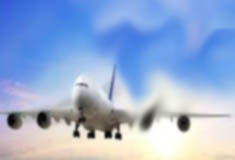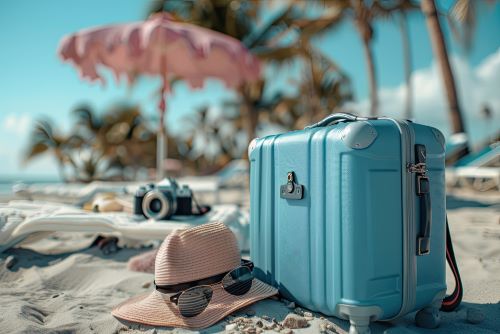Journeys and Blessings: Halachot of Reciting Hagomel after Travel
הרב שי טחןד שבט, תשפה02/02/2025As people return from winter vacation, they should remember to recite the Hagomel blessing, as most have traveled to distant locations, which typically require this bracha
תגיות:ברכת הגומלטיולנופש
As people return from winter vacation, they should remember to recite the Hagomel blessing, as most have traveled to distant locations, which typically require this bracha. We'll touch upon three common modes of travel: ship, car, and plane.
But first, let's categorize the four types of people whom Chazal obligated to say the Hagomel blessing.
Four Categories of People Who Must Recite Hagomel:
The first category is Yam (the sea), meaning anyone who has traveled on the sea, such as on a cruise. Some poskim (Chacham Ovaida) even obligate those who went swimming in the sea to recite Hagomel, although the majority of poskim require that the person must have been in a boat or ship for at least 72 minutes or more in order to be obligated to say the blessing. If the travel by sea was shorter than that, no blessing is required.
Secondly, there is traveling by car from city to city, a distance of 72 minutes from the outskirts of the city. The Shulchan Aruch (219; 7) writes that Ashkenazim do not recite the blessing for traveling from one city to another, as this type of travel does not fall under any of the four categories mentioned above. However, Sephardim do recite the blessing, as they consider traveling between cities to be dangerous. Still, some Sephardic poskim argue that today’s roads are considered safe and do not require the blessing, unless one is traveling on unsafe or deserted roads.
Finally, there is traveling by airplane, which, according to the majority of opinions, requires the Hagomel blessing due to the inherent danger of being in the air and not on the safety of the ground. Some opinions, however, stipulate that the plane must fly over water to classify the journey as akin to crossing the sea.
The Blessing Itself:
But first, let's categorize the four types of people whom Chazal obligated to say the Hagomel blessing.
Four Categories of People Who Must Recite Hagomel:
1. Yordei HaYam- those who sailed on the sea: When a person has safely completed a sea voyage, they must thank Hashem by reciting Hagomel.
must thank Hashem by reciting Hagomel.

2. Holchei Midbarot- those who journeyed through deserts: Those who traveled through dangerous, desolate areas where they could face significant threats must also recite Hagomel upon reaching safety.
3. Choleh- one who was ill and recovered: Someone who was dangerously ill and has now recovered expresses gratitude by reciting the blessing.
4. Chavush Beit HaAsurim- one who was imprisoned and was freed: If a person was in captivity or imprisoned and has been released, they are obligated to recite the Hagomel blessing.
Let's delve into the details of two of the four categories mentioned above, specifically those relevant to returning from a winter vacation.
The first category is Yam (the sea), meaning anyone who has traveled on the sea, such as on a cruise. Some poskim (Chacham Ovaida) even obligate those who went swimming in the sea to recite Hagomel, although the majority of poskim require that the person must have been in a boat or ship for at least 72 minutes or more in order to be obligated to say the blessing. If the travel by sea was shorter than that, no blessing is required.
Secondly, there is traveling by car from city to city, a distance of 72 minutes from the outskirts of the city. The Shulchan Aruch (219; 7) writes that Ashkenazim do not recite the blessing for traveling from one city to another, as this type of travel does not fall under any of the four categories mentioned above. However, Sephardim do recite the blessing, as they consider traveling between cities to be dangerous. Still, some Sephardic poskim argue that today’s roads are considered safe and do not require the blessing, unless one is traveling on unsafe or deserted roads.
Finally, there is traveling by airplane, which, according to the majority of opinions, requires the Hagomel blessing due to the inherent danger of being in the air and not on the safety of the ground. Some opinions, however, stipulate that the plane must fly over water to classify the journey as akin to crossing the sea.
The Blessing Itself:
• The person reciting the blessing says:
"HaGomel LeChayavim Tovot, SheGamalani Kol Tov."
("Blessed are You, Hashem, Who bestows kindness upon the guilty, Who has shown me all goodness.")
• The congregation responds:
"Mi SheGamalcha Kol Tov, Hu Yigmalcha Kol Tov, Selah."
("May He Who has bestowed upon you all goodness; continue to bestow upon you all goodness, forever.")
Halachic Requirements:
• In the Presence of a Minyan: The blessing must be recited in front of a minyan (ten men). This is based on the verse: "Ve’romemuhu Be’kahal Am, U’v’mishpat Zekanim Yahaleluhu" ("And He will be praised in the assembly of the people, and in the council of the elders, He will be exalted").
• If a Minyan is Not Present: If there is no congregation of ten men, it is still recommended to say the blessing, but it is considered ideal to do so in the presence of a minyan.
• When to Recite: The custom is to say Hagomel after the reading of the Torah, when a minyan is generally present, though the blessing may be recited at other appropriate times as well.
הוסף תגובה
עוד מהרב שי טחן
עוד בנושא מוסיקה







